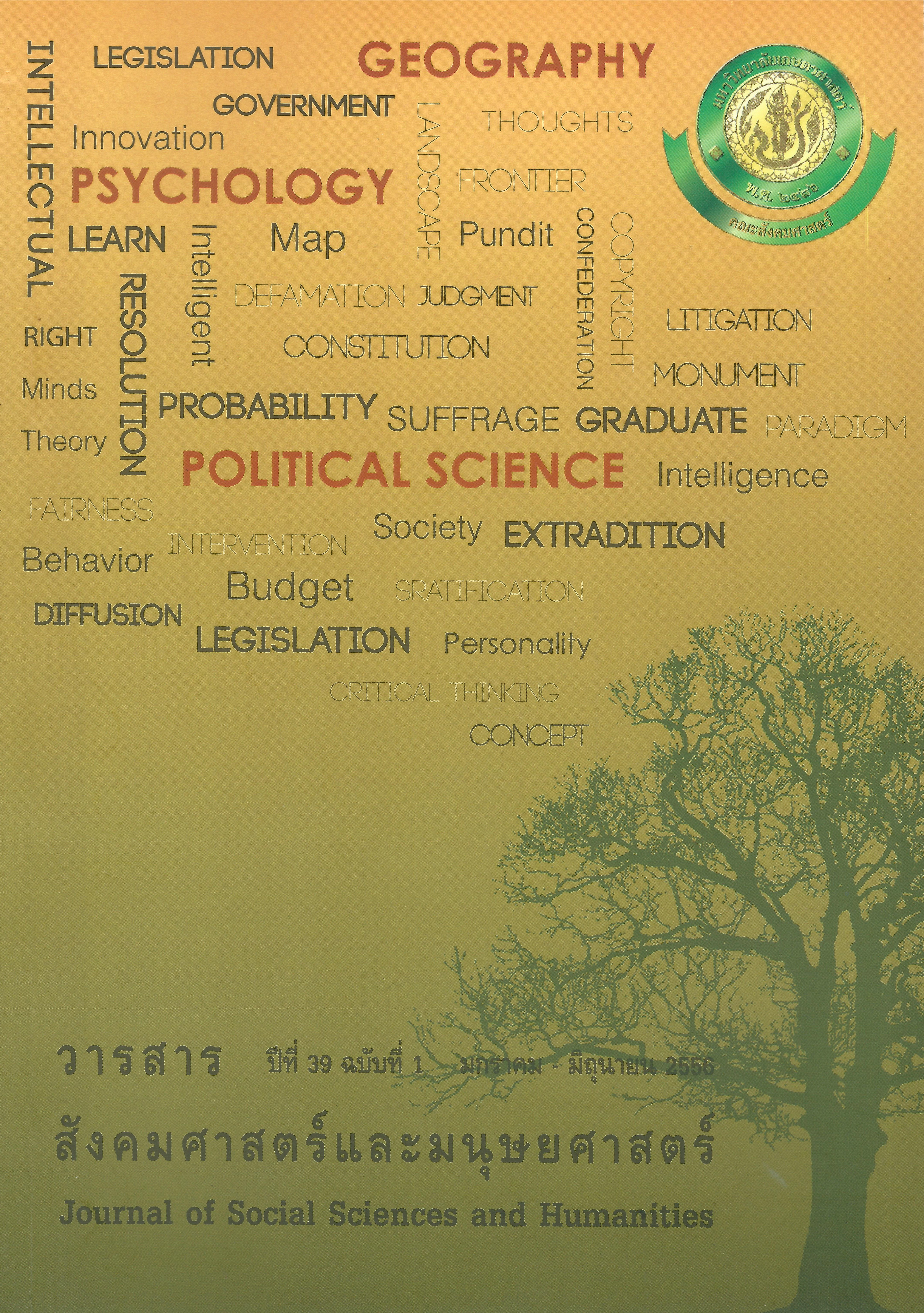การบริหารการเผยแผ่พุทธศาสนาในยุคโลกาภิวัตน์ของมหาเถรสมาคม
Main Article Content
บทคัดย่อ
การวิจัยเรื่องนี้มีวัตถุประสงค์เพื่อ 1) ศึกษาการบริหารการเผยแผ่พุทธศาสนาในยุคโลกาภิวัตน์ของมหาเถรสมาคม 2) ศึกษาระดับความสัมพันธ์ของปัจจัยที่ส่งผลต่อการบริหารการเผยแผ่พุทธศาสนาในยุคโลกาภิวัตน์ของมหาเถรสมาคม 3) ศึกษาปัญหา อุปสรรคการดำเนินงานของมหาเถรสมาคม และ 4) เป็นข้อเสนอแนะการบริหารการเผยแผ่พุทธศาสนาในยุคโลกาภิวัตน์ของมหาเถรสมาคม โดยใช้การวิจัยเชิงคุณภาพและเชิงปริมาณ กลุ่มตัวอย่างที่ใช้ในการวิจัยครั้งนี้ คือ พระสงฆ์ในสังกัดมหาเถรสมาคมในกรุงเทพมหานคร จำนวน 400 รูป ผลการวิจัยพบว่าระดับการบริหารการเผยแผ่พุทธศาสนาในยุคโลกาภิวัตน์ของมหาเถรสมาคมโดยภาพรวมอยู่ในระดับปานกลาง และประเด็นความสัมพันธ์ของปัจจัยที่ส่งผลต่อการบริหารการเผยแผ่ของมหาเถรสมาคม ทั้ง 9 ด้าน อยู่ในระดับปานกลางทั้งหมด ทุกปัจจัยมีนัยสำคัญทางสถิติที่ระดับ 0.01 ด้านปัญหาและอุปสรรค พบว่า มหาเถรสมาคมมีการบริหารในแนวดิ่งซึ่งก่อให้เกิดระบบอุปถัมภ์ คณะสงฆ์ส่วนใหญ่เน้นงานด้านการปกครองและการศึกษาการเผยแผ่ศาสนาเป็นประเด็นรอง ทั้งยังขาดงบประมาณ สื่อที่ทันสมัยและขาดพระนักเผยแผ่ ส่วนข้อเสนอแนะ พบว่า กรรมการมหาเถรสมาคมควรเกษียณอายุเมื่อครบ 70 ปี ไม่ควรบริหารในแนวดิ่งควรสร้างระบบเครือข่าย และปรับปรุงกฎระเบียบให้ทันสมัยกับการบริหารสมัยใหม่
Buddhism Dissemination Administration of The Sangha Supreme Council in the Globalization Age
The objectives of this study were firstly, to study Buddhism dissemination administration of the Sangha supreme council in the globalized world. Secondly, it studied the factors affecting such dissemination. Thirdly, it investigated the problems and obstacles of the management of the Sangha supreme council. And fourthly, it offered the suggestions on the approaches of dissemination. This is a mixed research which utilized both qualitative and quantitative data. The samples acquired from convenience sampling were 400 monks under regulations of the Sangha supreme council in Bangkok.
The research has shown that policy and overall administration of Sangha supreme council were moderate. All nine factors affecting the dissemination were also found to be at the moderate levels and at the statistical significance level of 0.01. The problems and obstacles were that the Sangha supreme council has adopted vertical approach of administration and had resulted in the system of patronage. Most of the tasks of the Sangha were in the lines of administration and education pushing the job of dissemination to be considered as secondary. These have brought about by limited budget and inadequate personnel for the job.
The suggestions were that the Sangha supreme council committees should set the retirement age at 70. Network system for dissemination should be promoted. At the same time, relevant regulations should be improved or amended to cope with the new era of administration.


